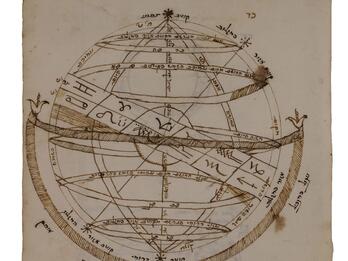Solomon Luria
Solomon Luria (the Maharshal) was born in Poland. At age forty, he became rabbi and head of the yeshiva in Ostraha (Ostróg). After twenty years, he moved to Brisk (Brest Litovsk) and then Lublin. In Lublin he served as head of a yeshiva until a quarrel led Luria to establish a new institution where he could implement his own teaching methods. Luria also demonstrated independence in his rulings, and his criticism of other scholars sometimes led to disputes. Luria considered the Talmud the ultimate source of halakhah, leading him to compose his major work, a halakhic compendium entitled Yam shel Shelomoh (Sea of Solomon), as a commentary on the Talmud. The extent of this work is unknown, as only a few tractates have survived. In addition, the critical notes that Luria made in his copy of the Talmud were later included in editions of the Talmud. Luria also composed numerous other works, among them glosses on Rashi’s Bible commentary, commentaries on the Grace after Meals and Sabbath songs, a book of personal customs, kabbalistic texts, and responsa that offer insights into sixteenth-century Jewish life in Poland and Lithuania.



